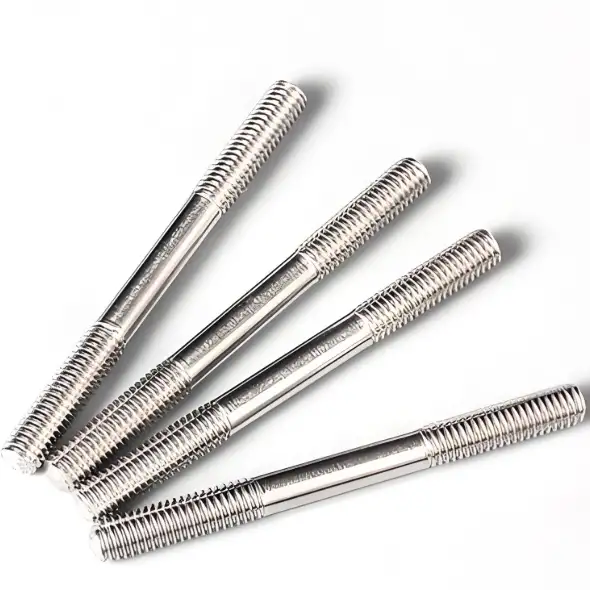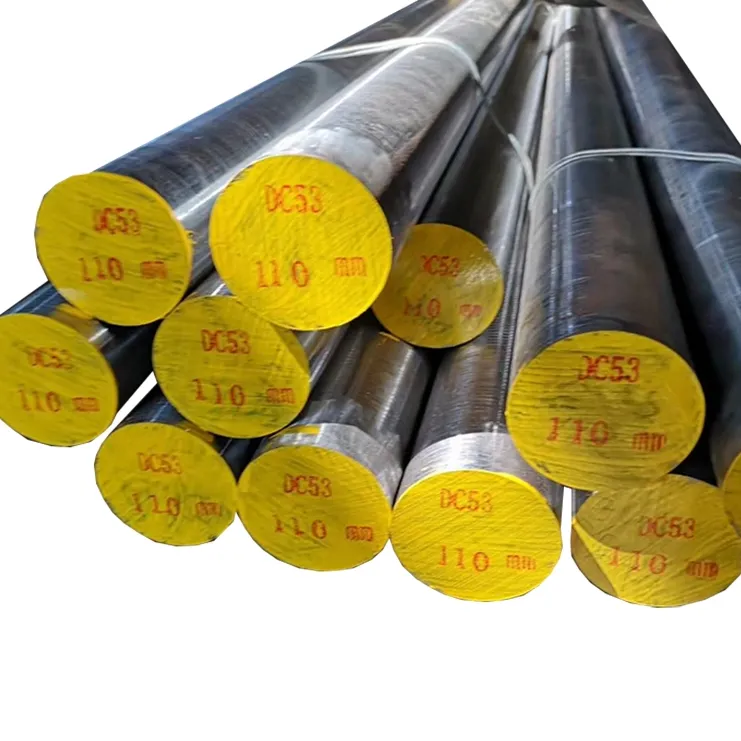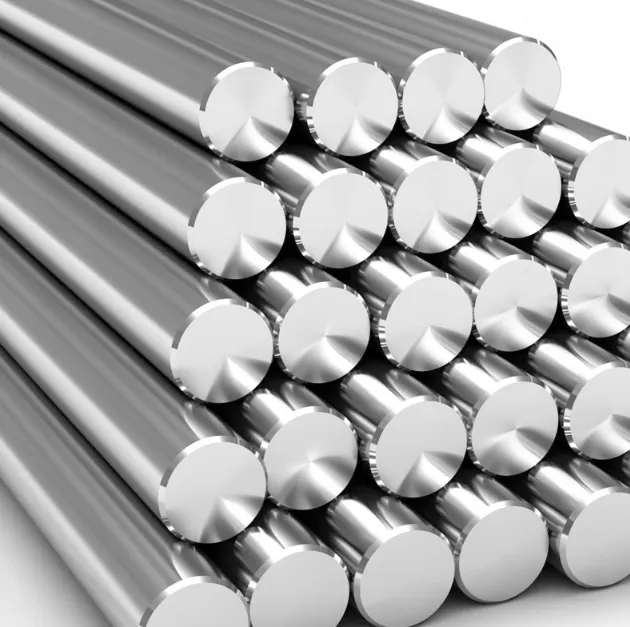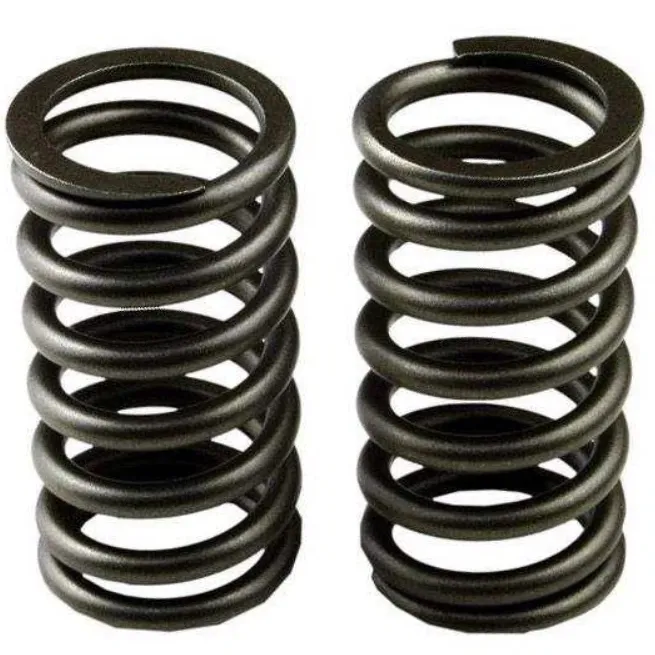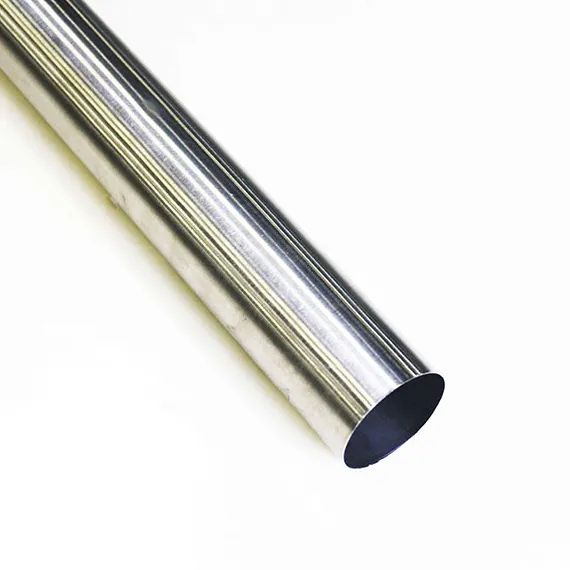Los tornillos Incoloy son elementos de fijación de níquel-hierro-cromo de primera calidad diseñados para entornos químicos y de alta temperatura exigentes; combinan una excepcional resistencia a la corrosión, una gran resistencia a altas temperaturas y una estabilidad dimensional fiable, lo que los convierte en la opción preferida para montajes petroquímicos, marinos y de generación de energía en los que fallan los aceros inoxidables ordinarios.
¿Qué son los tornillos Incoloy?
"Incoloy" es el nombre de una familia de aleaciones de níquel, hierro y cromo diseñadas para ofrecer resistencia a altas temperaturas y a medios corrosivos (especialmente ácidos reductores, entornos clorados y muchos flujos de procesos químicos). Los pernos y elementos de fijación fabricados en grados Incoloy utilizan el equilibrio de níquel y cromo de la aleación para proporcionar capacidad de carga mecánica y resistencia a la corrosión en los casos en que los aceros al carbono o inoxidables convencionales son inadecuados.
Principales calidades de Incoloy utilizadas para elementos de fijación
Las aleaciones Incoloy más comunes especificadas para elementos de fijación incluyen:
-
Incoloy 800 / 800H / 800HT (UNS N08800 / N08810 / N08811)Excelente resistencia a las incrustaciones y a la oxidación, además de buena resistencia a la fluencia a temperaturas elevadas moderadas; se utiliza a menudo cuando se requiere estabilidad en el intervalo de 315-593°C (600-1100°F).
-
Incoloy 825 (UNS N08825)La resistencia a la corrosión: notable por su extraordinaria resistencia a muchos ambientes reductores, incluidos el ácido sulfúrico y los medios con cloruros; ampliamente especificada en tuberías y fijaciones de procesos químicos.
-
Variantes más nuevas o especializadas de Incoloy/INCOLOY® (por ejemplo, 945 / 925)Se utiliza cuando se requieren paquetes de endurecimiento por envejecimiento o de mayor resistencia/corrosión en servicios de petróleo y gas o submarinos.
Propiedades de los materiales
| Propiedad | Incoloy 800 (típico) | Incoloy 825 (típico) | Notas / Servicio |
|---|---|---|---|
| Densidad (g/cm³) | ~8.0 | ~8.0 | Gama típica para aleaciones de níquel-hierro-cromo |
| Resistencia a la tracción (MPa) | 485-620 (varía según el estado) | 520-720 (varía según el estado) | Depende del tratamiento térmico y del trabajo en frío |
| Límite elástico (MPa) | ~205-310 | ~215-345 | Depende de la condición |
| Alargamiento (%) | 30-50 | 30-45 | Buena ductilidad para conformado/soldadura |
| Módulo de elasticidad (GPa) | ~200 | ~200 | Comparable a los aceros inoxidables |
| Temperatura máxima de servicio continuo | ~700-800°C (depende del grado) | ~550-700°C (depende del entorno) | Utilice orientaciones específicas para cada grado. |
| Resistencia a la corrosión | Excelente (ambientes oxidantes y algunos reductores) | Superior en entornos reductores/clorados/agrios | Al 825 se le ha añadido Mo y Cu para una resistencia específica a la corrosión. |
Nota de citación: Las hojas de datos y los boletines técnicos del fabricante resumen el rendimiento mecánico y térmico de cada grado INCOLOY®; los ingenieros deben utilizar siempre las tablas del fabricante para los límites de diseño.
Composición química
A continuación se muestran ventanas de composición simplificadas para las dos aleaciones de tornillería Incoloy más utilizadas. Se trata de intervalos representativos; compruebe siempre la composición exacta en los certificados de pruebas de laminación (MTC) de los lotes de elementos de fijación específicos.
Incoloy 800 (UNS N08800) - composición típica (wt%)
| Elemento | Alcance típico |
|---|---|
| Níquel (Ni) | 30.0 - 35.0 |
| Hierro (Fe) | Equilibrio (~39 - 46) |
| Cromo (Cr) | 19.0 - 23.0 |
| Carbono (C) | ≤ 0.10 |
| Manganeso (Mn) | ≤ 1.0 |
| Silicio (Si) | ≤ 0.5 |
| Titanio (Ti) | 0,15 - 0,60 (para algunas variantes) |
| Aluminio (Al) | ≤ 0.5 |
Incoloy 825 (UNS N08825) - composición típica (wt%)
| Elemento | Alcance típico |
|---|---|
| Níquel (Ni) | 38.0 - 46.0 |
| Hierro (Fe) | ~22.0 - balance |
| Cromo (Cr) | 19.5 - 23.5 |
| Molibdeno (Mo) | 2.5 - 3.5 |
| Cobre (Cu) | 1.5 - 3.0 |
| Titanio (Ti) | 0.6 - 1.2 |
| Carbono (C) | ≤ 0.05 |
| Silicio (Si) | ≤ 0.5 |
(Fuente: boletines técnicos de los fabricantes y referencias metalúrgicas - estos rangos son típicos para la selección y adquisición de ingeniería).
Maquinabilidad, conformado y prácticas recomendadas
-
Maquinabilidad: Las aleaciones Incoloy suelen ser más difíciles de mecanizar que los aceros inoxidables austeníticos. El grado 800 muestra una maquinabilidad moderada cuando se aplican las herramientas y avances correctos; el grado 825 es ligeramente más gomoso debido al mayor contenido de níquel y cobre, que puede provocar el endurecimiento por deformación. Utilice herramientas de metal duro, profundidades de corte modestas, refrigerante constante y avances lentos para obtener resultados uniformes.
-
Roscado y conformado en frío: Muchos elementos de fijación Incoloy se fabrican a partir de barras mediante estampación en frío cuando es posible, pero algunas secciones más pesadas y condiciones de alta resistencia requieren conformación y acabado en caliente. El laminado de roscas (preferido) o el corte (para pequeñas series) se utilizan en ambos casos; especifique el método de fabricación si el ajuste y la resistencia de la rosca son críticos.
-
Soldadura y unión: La familia del Incoloy 800 se suelda fácilmente con metales de aportación adecuados; el 825 también se suelda bien, pero las consideraciones sobre el tratamiento térmico posterior a la soldadura y la selección de la aportación deben seguir la práctica del fabricante. En el caso de los elementos de fijación, la soldadura es poco común, excepto en subconjuntos.
Recomendación práctica: Pida a su proveedor los parámetros de utillaje recomendados y solicite series de producción de muestra para validar la forma de la rosca y el comportamiento del apriete por par en condiciones de servicio.
Aplicaciones típicas en las que los tornillos Incoloy superan a las alternativas
-
Equipos para procesos petroquímicos y químicos: pernos en intercambiadores de calor, recipientes a presión y sistemas de tuberías donde se produzcan ataques de sulfuro/cloruro o ácidos reductores.
-
Generación de energía y calderas: componentes expuestos a altas temperaturas y esfuerzos cíclicos (800/800H/HT son habituales en este caso).
-
Marina / desalinización: donde el agua de mar o los ambientes salobres exigen mejores prestaciones que los aceros inoxidables estándar.
-
Petróleo y gas (fondo de pozo y superficie): Para los servicios ácidos o con cloruros, algunas variantes de Incoloy (y aleaciones de níquel relacionadas) ofrecen ventajas en el ciclo de vida.
-
Gases de combustión, herrajes del horno: cuando se requiera resistencia a la oxidación a temperaturas elevadas.
¿Por qué elegir Incoloy en lugar de acero inoxidable? El equilibrio de la aleación proporciona una mayor estabilidad bajo la tensión del cloruro y temperaturas elevadas; aunque es más costoso al principio, Incoloy a menudo reduce los costes del ciclo de vida en servicio agresivo.
Tamaños, normas y peso
Los pernos Incoloy están disponibles según las normas comunes de tornillería (ISO, DIN, ASTM) y en tamaños métricos e imperiales. Los inventarios de los proveedores suelen almacenar de M3 a M56 / de 3/16" a 2" y pernos más grandes a medida. A continuación se muestra una referencia compacta de los pesos típicos de los pernos hexagonales (masa aproximada por 100 piezasLos pesos son representativos de tornillos hexagonales con su correspondiente tuerca y arandela plana, si procede (fuente: tablas de pesos de tornillería de la industria escaladas según la equivalencia de densidad de la aleación). Solicite siempre las hojas de peso del proveedor para los presupuestos finales de envío.
| Tamaño (métrico) | Longitud típica (mm) | Peso aproximado por 100 piezas (kg) |
|---|---|---|
| M6 | 16-25 | 0,6 - 1,0 kg |
| M8 | 20-40 | 1,0 - 1,9 kg |
| M10 | 25-60 | 1,6 - 5,0 kg |
| M12 | 30-100 | 3,0 - 12,0 kg |
| M16 | 40-120 | 7,0 - 28,0 kg |
| M20 | 50-150 | 12,0 - 48,0 kg |
Los equivalentes en pulgadas y los pesos de los pernos hexagonales y espárragos pesados están disponibles en las tablas de pesos de los proveedores (los pesos anteriores son agregados de las tablas de pesos de pernos ISO/DIN estándar; las diferencias de densidad de Incoloy frente al acero al carbono son pequeñas, pero deben utilizarse para ajustar la masa de envío para pedidos grandes).
En los inventarios de los proveedores suelen figurar los tamaños M3-M56 (métrico) y 3/16"-2" (imperial) para los elementos de fijación Incoloy 825 y 800.
Acabados superficiales, pasivación y revestimientos
-
Acabados estándar: fresado liso, pasivado, brillante (para aspecto especial). El pasivado mejora la resistencia a algunos entornos corrosivos y se recomienda para instalaciones de procesos críticos.
-
Opciones de chapado: El revestimiento no es habitual en Incoloy (la aleación base proporciona protección contra la corrosión); cuando sea necesario, los revestimientos especializados deben ser compatibles con el sustrato y la temperatura de servicio.
-
Marcado y trazabilidad: Los elementos de fijación para servicios críticos deben tener trazabilidad MTC con número UNS, número térmico y dureza, y deben ajustarse a las especificaciones ASTM/EN pertinentes.
Comparación mundial de precios 2025: Estados Unidos / Europa / China
Los precios del Incoloy (productos aleados de níquel) están fuertemente influenciados por los costes de las materias primas níquel, molibdeno y cobre, los recargos por aleación, la cantidad del pedido y el acabado/tratamiento térmico. A continuación se indican gamas de mercado indicativas para 2025 para la presupuestación de las adquisiciones; trátelos como puntos de partida: solicite presupuestos en firme para las adquisiciones.
| Región | Rango de precios típico (ejemplo, barras de Incoloy 825/equivalente de materia prima de fijación) |
|---|---|
| Estados Unidos (2025) | ~USD $60 - $110 / kg (fijaciones con mecanizado y certificación hacia el extremo superior). |
| Europa (2025) | ~USD $65 - $120 / kg (similar a EE.UU., con primas de importación y cumplimiento). |
| China (2025 FOB / fábrica) | ~USD $28 - $50 / kg para barras/chapas en bruto y más bajos para grandes volúmenes de OEM; los elementos de fijación acabados y certificados suelen aterrizar más caros, pero siguen teniendo precios competitivos frente a los proveedores occidentales. |
¿Qué impulsa el diferencial? Las fijaciones certificadas de lotes pequeños (trazabilidad, pruebas de dureza, 3.1/3.2 MTC) añaden coste. Las fuentes occidentales suelen incluir costes de procesamiento y mano de obra más elevados; los precios de las fábricas chinas para la materia prima y las piezas acabadas pueden ser sustancialmente más bajos para pedidos al por mayor, pero confirman las opciones de inspección en fábrica y pruebas de terceros.
Consejo práctico sobre contratación: Para proyectos sensibles al plazo de entrega y la certificación, compare el coste total en destino (precio + inspección + plazo de entrega + logística) en lugar de las cotizaciones brutas por kg.
Fabricación, tratamiento térmico y normas
-
Normas y números UNS: Incoloy 800 (UNS N08800), 800H/HT (N08810 / N08811), 825 (N08825). Las especificaciones ASTM comunes para barras/soldaduras y piezas forjadas varían; los proveedores suelen suministrar material según los equivalentes ASTM/ASME o EN previa solicitud.
-
Tratamiento térmico: Para 800H/HT, el recocido en disolución y el enfriamiento controlado proporcionan resistencia a la fluencia; 825 se suministra normalmente recocido en disolución. Para las fijaciones de alta resistencia, el fabricante especificará cualquier tratamiento térmico posterior al conformado.
-
Pruebas: La dureza, la tracción, el análisis químico y los MTC son rutinarios para los pedidos críticos. La inspección por terceros (TPI) es habitual para servicios de petróleo y gas o nucleares.
Por qué elegir MWAlloys
MWAlloys es un proveedor especializado en tornillería y componentes de precisión de aleación de níquel. Nuestra oferta de pernos Incoloy incluye:
-
Directo de fábrica (China) - 100% precios de fábrica en artículos de stock estándar y ofertas competitivas para volúmenes OEM.
-
Disponibilidad de existencias - Tamaños populares en Incoloy 800 y 825 mantenidos en inventario para entrega rápida; envíos urgentes para proyectos urgentes.
-
Control de calidad - Certificados de materiales (MTC), análisis químicos de lotes y pruebas mecánicas disponibles previa solicitud; inspección por terceros concertada para pedidos críticos.
-
Personalización - longitudes personalizadas, formas de cabeza especiales y tuercas/arandelas adaptadas a las especificaciones.
-
Logística - Experiencia en exportación a EE.UU., Europa, Oriente Medio y el Sudeste Asiático; ayuda con el embalaje, la documentación de exportación y el cumplimiento de las normas comerciales.
Si necesita una evaluación de muestras o un presupuesto formal, MWAlloys puede suministrarle precios basados en cantidades y compromisos de plazos de entrega con informes de inspección fotográfica y MTC antes del envío.
Preguntas frecuentes
-
¿Son magnéticos los tornillos Incoloy?
Normalmente, las aleaciones Incoloy (familia 800/825) son esencialmente no magnéticas en estado recocido porque son austeníticas; puede aparecer cierta respuesta magnética después del trabajo en frío. -
¿Se pueden utilizar tornillos Incoloy en agua de mar?
Sí, Incoloy mejora a muchos aceros inoxidables en entornos con cloruros, pero la selección debe tener en cuenta el caudal, la oxigenación y la temperatura. Para una exposición prolongada al agua de mar, consulte los datos de corrosión del grado específico. -
¿Cuál es el coste de los tornillos Incoloy en comparación con los inoxidables 316L o dúplex?
El Incoloy es más caro por kilogramo, pero puede proporcionar un valor superior durante el ciclo de vida en los casos en que la tensión del cloruro o las temperaturas elevadas degradarían los aceros inoxidables. -
¿Puedo roscar tornillos Incoloy?
Sí; el laminado de roscas es preferible siempre que sea posible porque mejora la resistencia a la fatiga, pero el utillaje y los parámetros del proceso deben optimizarse para las aleaciones de níquel. -
¿Qué valores de par de apriete debo utilizar para los tornillos Incoloy?
Utilizar tablas de par de apriete derivadas de la carga de prueba medida y la geometría de la rosca; debido a que las aleaciones Incoloy pueden ser más blandas que los aceros al carbono de alta resistencia, utilizar la guía de par de apriete del fabricante y lubricantes cuando sea necesario. -
¿Son soldables los pernos Incoloy?
Las aleaciones son soldables utilizando metales de aportación y procedimientos adecuados, aunque no se recomienda la reparación por soldadura de elementos de fijación roscados para aplicaciones de carga. -
¿Necesitan pasivación los elementos de fijación Incoloy?
La pasivación puede mejorar la resistencia para algunos servicios químicos; consulte el proceso y las recomendaciones del proveedor. -
¿Qué certificados debo solicitar?
Solicite certificados de ensayos de laminación (EN10204 3.1 o 3.2), informes de ensayos químicos y mecánicos y cualquier resultado de END necesario para el servicio crítico. -
¿Cuál es el plazo de entrega de MWAlloys?
Para los tamaños en stock, los plazos de entrega suelen ser cortos (de unos días a unas semanas); para pedidos más grandes o personalizados, el plazo de entrega depende del tamaño del pedido, el tratamiento térmico y los requisitos de inspección - MWAlloys proporciona plazos de entrega firmes con cada presupuesto. -
¿Puede MWAlloys soportar grandes volúmenes de OEM?
Sí, tenemos capacidad de fábrica y procedimientos de control de calidad para servir grandes series de producción con opciones de trazabilidad e inspección completas.

